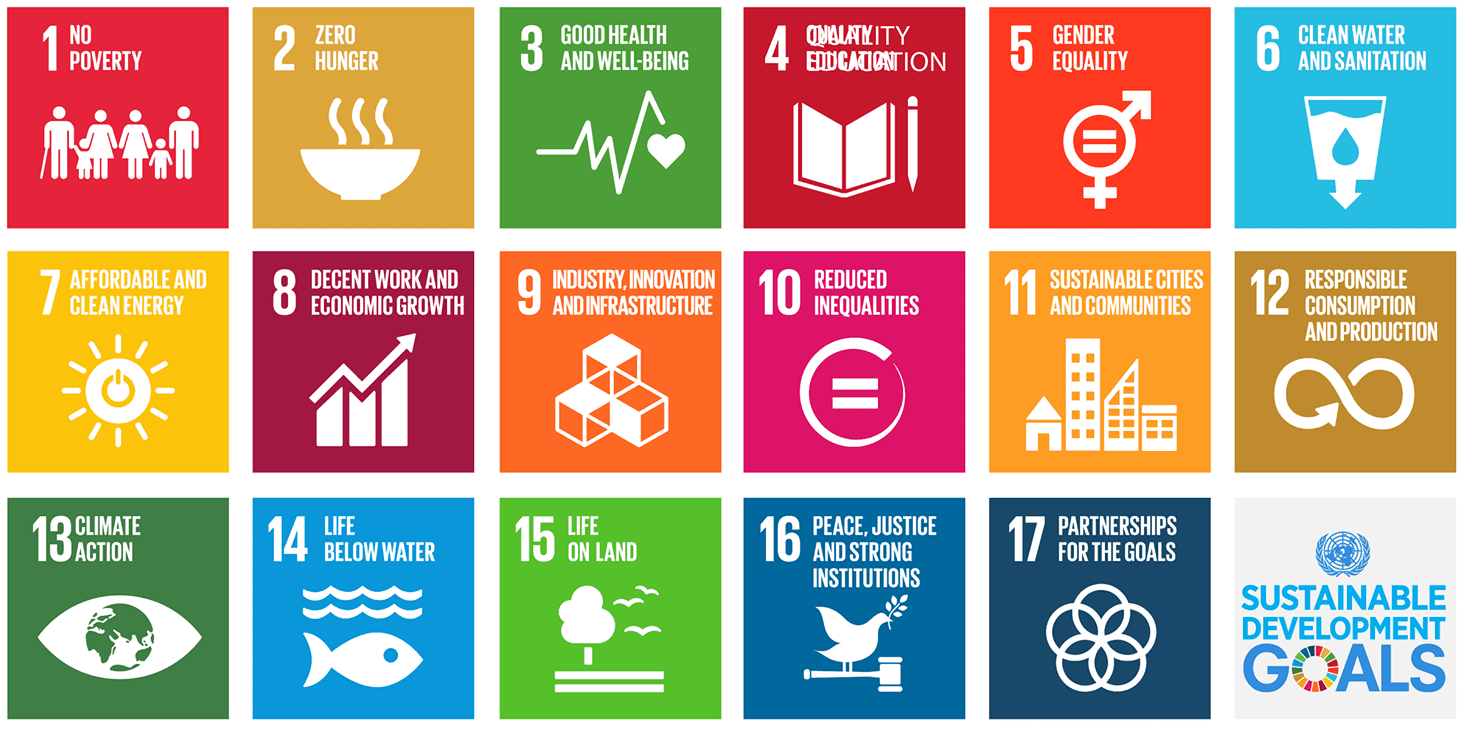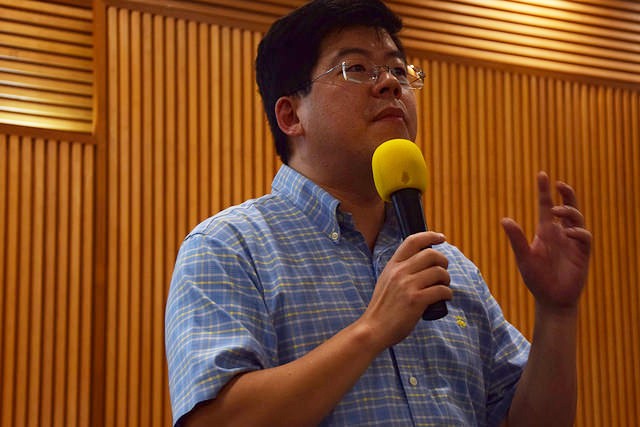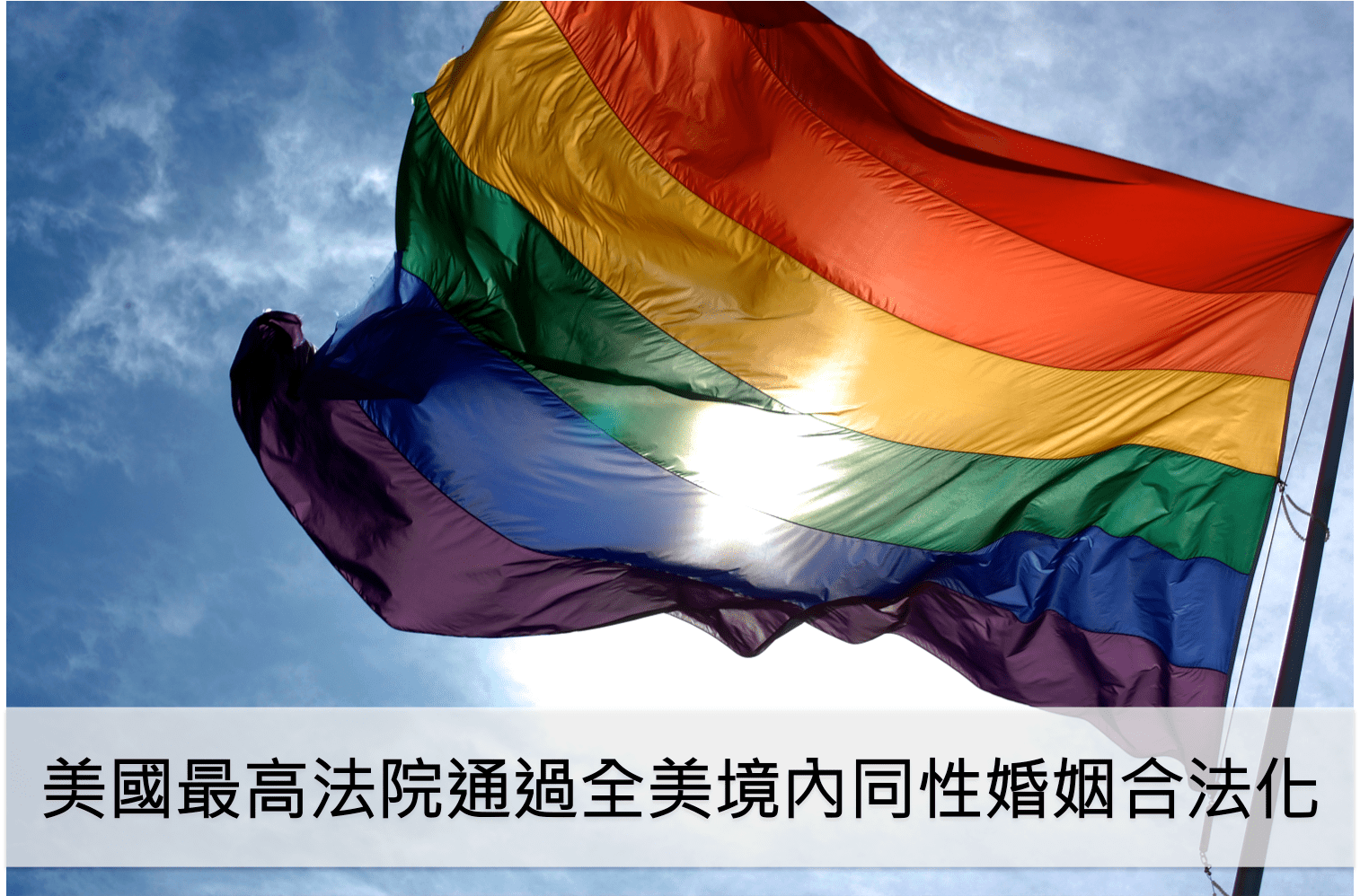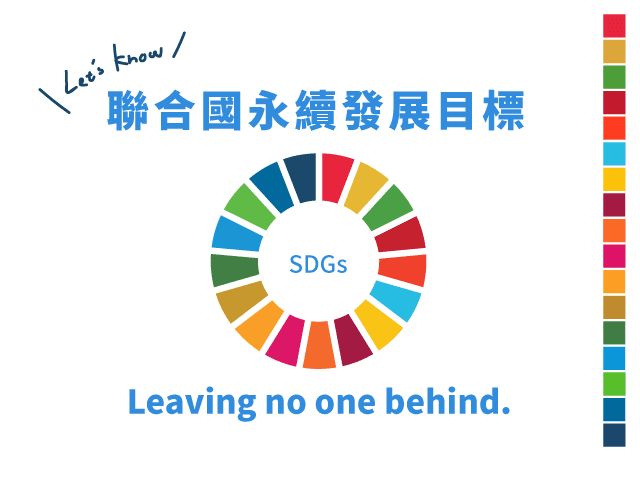賦權貧困者之前,先賦權給工作者/世界前 50 大領袖 Sir Fazle 來臺報導
編按:
2017 NPOst 年會,我們邀請到連續 2 年蟬聯全球前 500 大 NGO 第一名的 BRAC 執行長法茲雷爵士(Sir Fazle),為臺灣帶來寶貴的經驗分享。
法茲雷爵士總共停留臺灣 5 天,從 10/18 中午一直到 10/22 早上。NPOst 陪同爵士一起拜會了陳建仁副總統,並與外交部 NGO 事務會等官方相關人士對談,同時與臺灣海外援助發展聯盟(Taiwan AID)餐敘,並親致大愛感恩科技交流。當然,還有整趟豐富行程中的重頭戲──於 NPOst 年會中為臺灣超過 300 位 NGOs 工作者帶來的、逾 1 小時的演說。
年屆 81 歲的法茲雷爵士為人和藹風趣,精闢的分享卻令人印象深刻。NPOst 將短短 5 天裡所有路程中與交流對談過程的珍貴點滴,整理紀錄於本篇報導。其中有許多在本次年會的 3 篇前導報導中已多所著墨(例如 BRAC 的創立過程),本篇便不再贅述(參考文末延伸閱讀)。期望這一系列的整理,能為每一個關心社會共好的讀者帶來更多啟發。
1971 年,孟加拉因獨立戰爭而千瘡百孔,再加上致命的熱帶氣旋(颱風)衝擊,上千萬難民顛沛流灕。當時的法茲雷爵士在世界知名的殼牌石油公司(Shell Oil Company)擔任會計部部長,但他於 NPOst 年會的演說中強調:「颱風就像我人生的警鐘。我希望可以改善孟加拉的狀況。」
隔年,法茲雷爵士賣掉自己在倫敦的房子,再加上手頭原有的資金,投入 100 萬美金為流離失所的難民們建造遮敝所,並成立了 BRAC。接下來的 9 年內,BRAC 陸續蓋了超過 1 萬戶房舍,並提供醫療照護與兒童教育,在當時是極為成功的救援與重建計畫。
「我以為我完成這些之後就可以繼續回到會計工作,但孟加拉百廢待舉,我發現自己沒辦法離開。」時年 36 歲的法茲雷爵士從此投入扶貧志業。當時的孟加拉,名列全球第 2 貧困國家,極度欠缺醫療與教育系統,BRAC 有幸先從樂施會(Oxfam)與孟加拉政府得到資金,開始了大規模且長遠的扶貧發展計畫。
會計專業出身的法茲雷爵士,在有效的管理與資源運用之下,於第一階段的發展計畫結束後,還剩下些許資金,他準備把結餘還給樂施會,樂施會很驚訝:「把錢留著,你們之後還會有需要。」BRAC 與捐助方的信任由此展開,「有效運用資源」成了 BRAC 留給外界的重要信譽保證。
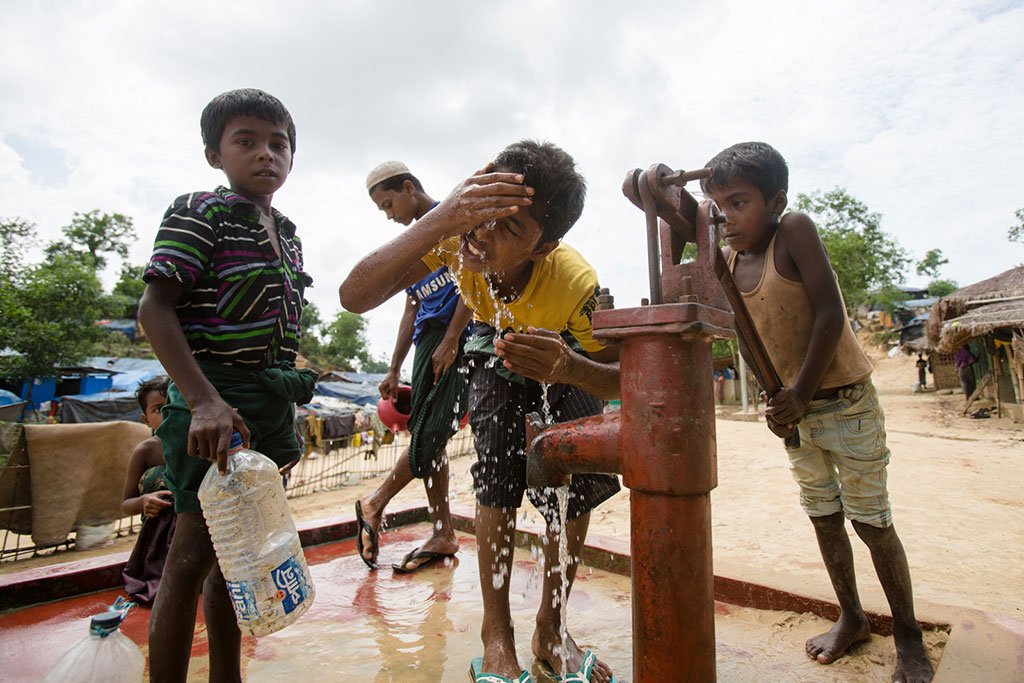
BRAC 也致力於為孩童提供乾淨的飲用水。圖/@ BRAC 官網
事實上,有效的管理與資源運用、熟稔市場邏輯甚至創造市場、持續評估計畫的效能與效率,這些原則一直以來都是 BRAC 執行計畫的核心。「很多人都很有愛心,但有愛心還要會思考。」而這也是 BRAC 得以從發展中國家原生長出、拓展至全球的關鍵之一:「我們之所以能走到今天,首先是因為 70 年代的孟加拉實在有太多亟需幫助的窮人;其二是因為孟加拉政府給了我們很大的發展空間,不像很多政府會害怕 NGO 勢力龐大;第三,就是因為我們秉持企業管理思維,不斷檢核活動與計畫成效。」法茲雷爵士說。
他笑著補充:「常有年輕人問我,要如何才能進入 NGO,成為優秀的 NGO 工作者?我總是告訴他們:『先到企業磨 2 年吧!』先到企業裡學習管理思維與市場邏輯,磨練 2 年,再進入 NGO,你會有完全不同的視角。」
賈伯斯:「你為什麼花了 30 年才走出孟加拉?」
秉持高效率的管理思維,走過近半世紀,如今的 BRAC 在全球 11 個國家遍布逾 11 萬工作者。而令人意外的是,不僅臺灣致力於國際合作與發展的 NGO 經常被質疑:「為什麼不先幫助臺灣人?」這個問題顯然在世界各地也不斷出現。當 2001 年 BRAC 首度踏出孟加拉,到阿富汗拓展扶貧計畫時,也遭遇到同樣的挑戰:「你在孟加拉的計畫都完成了嗎?你為什麼不先照顧好孟加拉?」
對於這個問題,法茲雷爵士說:「我要做的就是扶貧,所以哪裡有貧困者,哪裡就有人需要幫助。」話峰一轉,他笑著說:「但我也曾被蘋果創辦人史提夫‧賈伯斯(Steve Jobs)問過:『你為什麼花了 30 年才走出孟加拉?』我想每個人都有很不同的思考。」
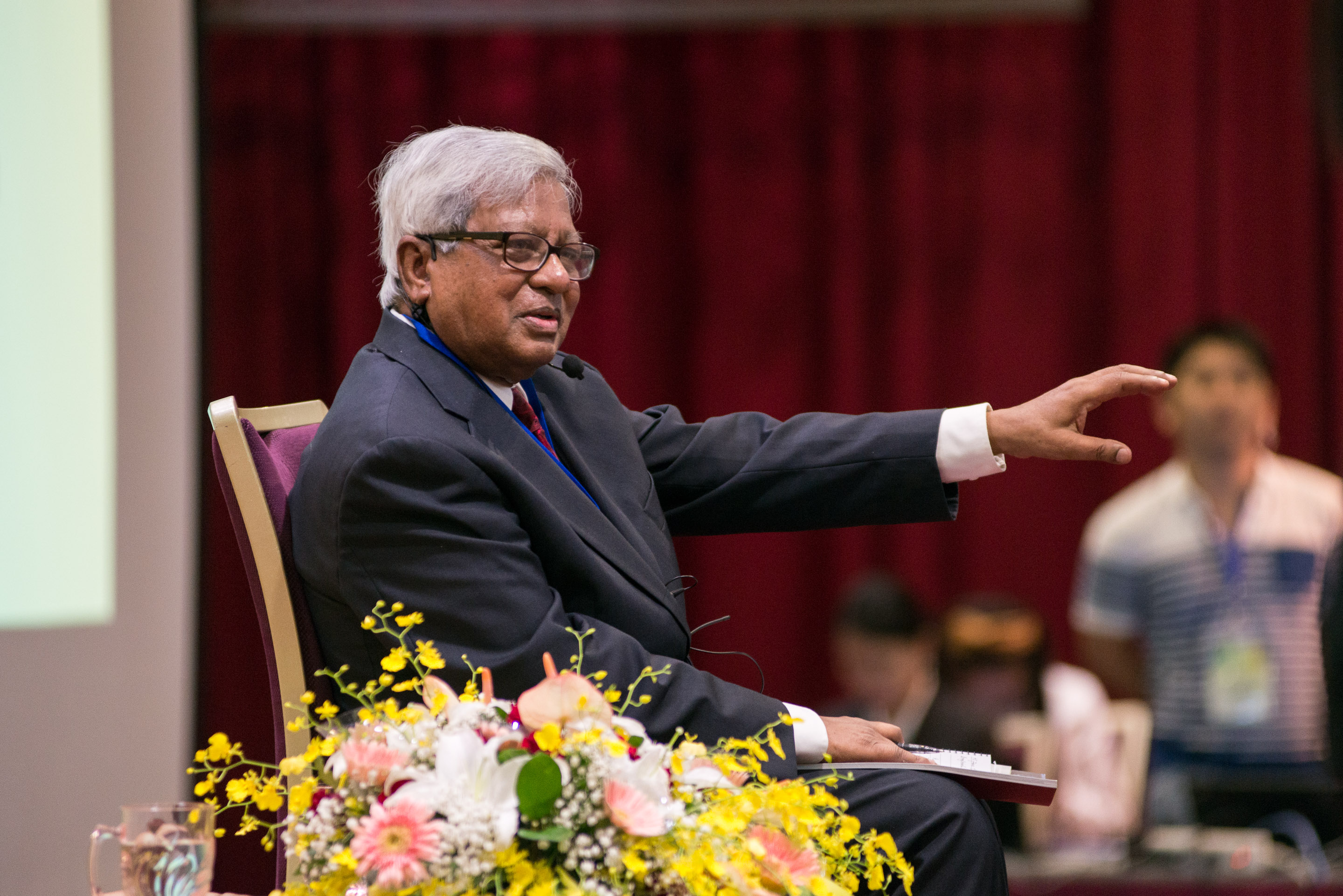
法茲雷爵士。攝影/Jason Yeh
看待企業與看待 NGO 的不同視角,還體現在各個不同的地方。當 BRAC 的工作者規模突破 1 萬人時,有人開始擔心他的組織「太大」,他卻感到困惑:「過去我在殼牌石油公司工作,我們全世界工作者加起來超過 30 多萬人,卻從沒有人擔心我們『太大』。為什麼換成 NGO,就會成為一個問題呢?」
對爵士來說,BRAC 其實也很希望有人能複製他們的成功經驗,一起解決問題,但這樣的組織在孟加拉一直沒有出現,BRAC 只好持續擴大:「我知道有很多人喜歡中小型組織,但我們必須擴大,因為我們有很多目標。我想說的是,NGO 要成長茁壯不是問題,問題在於變大之前的準備是否充足。」
「你必須在你擴大之前,就先建立起 4 個最關鍵的能力:人力訓練、募款與資源、財務與會計、評估與稽查。而且這些能力必須在你擴大之前就先打好底子,否則輕易擴大規模會很危險。」爵士說:「BRAC 會先從小的實驗計畫開始,反覆監督、評估與調整,盡可能提升計畫的效能與效率,然後才將規模擴大到全國或區域層次。我們也極為重視人才的招募與培訓,我們在全孟加拉設立了 25 個人力資源訓練中心,等人力與資源都到位之後,才試著去擴大方案計畫的規模。」
也因為極為重視「人」的培養,BRAC 才擁有了最多極具向心力的工作者:「其實 BRAC 雖然是世上規模最大的 NGO,卻不是資源最多的。」法茲雷爵士開玩笑說,歐美有許多更有資源的 NGO,BRAC 「只是人多」罷了。
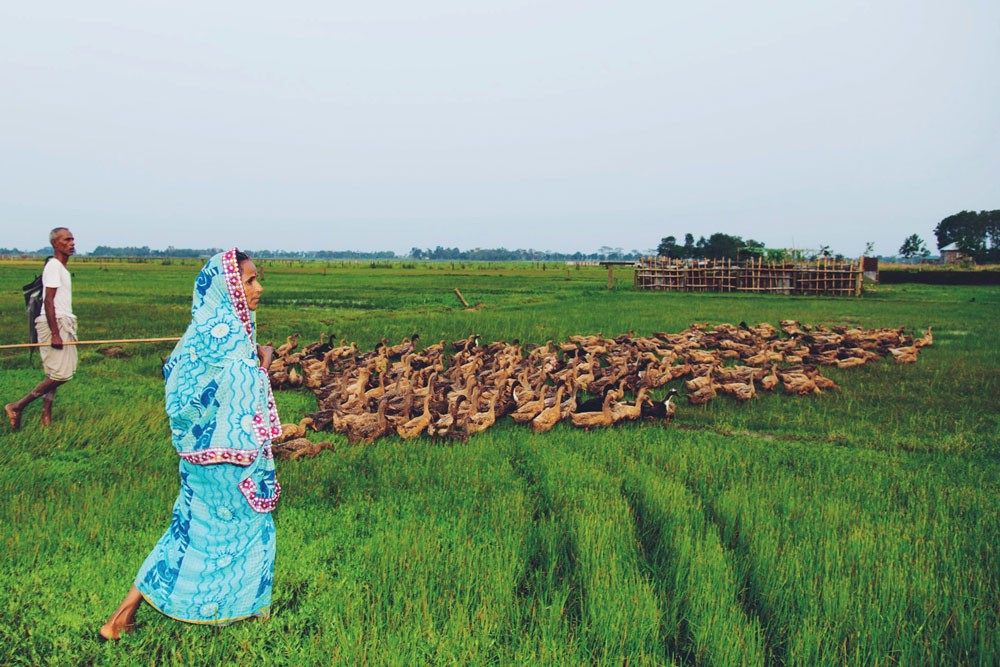
圖/@ BRAC 官網
賦權貧困者之前,先賦權給工作者
而究竟這麼多人,該如何確保組織的核心價值得以貫徹,並且培育領導人才?
「賦權是關鍵。」法茲雷爵士強調:「BRAC 有很多不同專業的領導者,各自負責不一樣的計畫,我們讓他們自己做許多決定。當然,有些人會犯錯,但我們允許犯錯、讓每個人都有機會犯錯,只要他們能夠從錯誤中學習。這些領導人不一定都會長久留在 BRAC,但他們如果到其他舞臺去發揮,我也覺得很好,因為同一時間,BRAC 也會有其他新血加入。」
法茲雷爵士進一步指出:「BRAC 有 4 大核心價值:誠信(integrity)、創新(innovation)、包容(inclusiveness)與效能(effectiveness),每一個價值底下都有其子目標,我們將之製作成小冊子,確保每一個新進員工都能理解並認同這些價值。每年,我們也會於年底重新檢視並調整工作計畫,並且每 5 年調整一次階段性目標,以確保 BRAC 持續往正確的方向前進。

圖/juan pablo rodriguez @ Unsplash
貧窮是結構性的問題
今年 10 月 6 日,由 27 個臺灣 NGOs 發起的「貧窮人的臺北」活動,號召約 200 名參加者在臺北愛國東路遊行及夜宿。在綿綿細雨的大安森林中,陳建仁副總統致詞表示,貧窮肇因於結構性的壓迫,而非如過去所認為的,是個人不努力或道德失敗所致。而這也是法茲雷爵士一再強調的:對貧困者來說,短期急難式的給予金錢或物資遠遠不夠,重要的是創造一個有利貧困者長久發展的「環境」:「讓每個人都有體面的工作、有工作的機會、有被需要的感覺,如此才能發揮『人』的價值。」
法茲雷爵士自始就深信,貧困者才是改變自己命運的行動者,除此之外沒有任何人有辦法直接改變他人的生命。因此,NGOs 要做的是讓這些貧困者「願意改變」、「想要改變」,並且創造一個讓他們「能夠改變」的環境。
「剛開始我們確實碰到不小的困難。例如我們不斷設立學校,跟樂施會誇下海口說 3 年內會讓每個孟加拉人都能獲得教育。但後來發現,沒有人想在一整天辛苦工作之後,還去學校上課,因為這對他們的生活沒有幫助。」然而,不願上課看來是因為疲憊,真正的原因其實在於沒有動力、不理解學習是怎麼一回事。
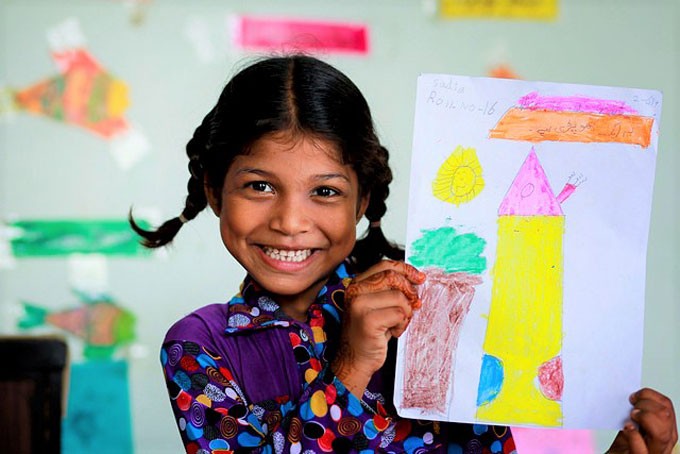
圖/@ BRAC 官網
「後來我們去請教巴西的教育家,他運用一些關鍵字,例如饑荒、艱困、挨餓等,教貧困者先從生活中最切身相關的問題開始討論,包括為什麼有些人會一無所有?窮人面臨什麼樣的現況?社會上的歧視有哪些?透過討論,貧困者開始思考、建立自信,接著就會開始尋找解決辦法與答案。」
「這種批判性思考與自信就是我們想看到的。他們必須先想要改變,而且深信自己有能力改變,我們再創造有利於改變的環境,如此才有意義。例如 BRAC 會提供微型貸款給他們,但他們必須自己學會儲蓄、努力工作,才能償還貸款。」
關於儲蓄,法茲雷強調,貧困者對「未來」的概念與臺灣人的想像或許相差很多:「對他們來說,一次只會想一天的事。今天可以工作,那就先餵飽今天的肚子,明天的事明天再說。時程計畫總是只有 24 小時,因此教導他們儲蓄、思考明天、後天、下個月、明年,讓他們的眼光放遠,是非常重要的概念。」
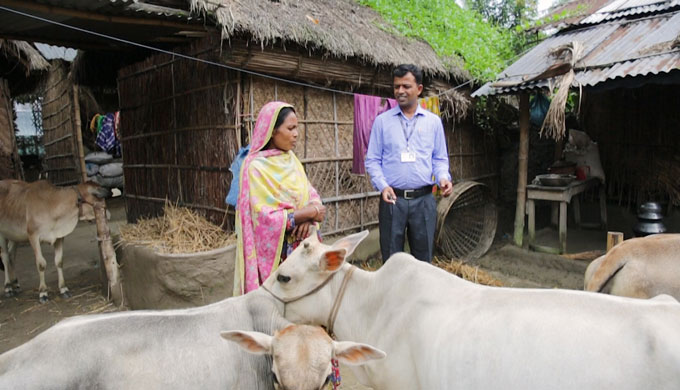
圖/@ BRAC 官網
貧困者對某些概念的理解異同,對許多歐美 NGOs 來說或許陌生,然對於從孟加拉戰後灰燼中崛起 BRAC,卻非常能夠理解。法茲雷爵士很早就知道,人必須先「相信」,才會願意學習。而要讓貧困者「相信」,往往障礙重重。
「1979 年,我們逐一透過家訪,教導婦女們調製口服脫水補充液,透過一定濃度比例的糖、鹽、水,讓每一位女性都能學會、提升孩子們的健康。剛開始我們必須帶訓練員到首都的研究中心,讓他們學習並理解這些知識,他們才有信心並願意回到村裡去推行。」
法茲雷爵士解釋:「但後來成效還是不好,我們又請了人類學家去做計畫訪查,才發現許多家庭中的男性因為不理解而阻止婦女學習,成了計畫推行的阻力。我們於是又調整了計畫,針對男性重新做教育,之後又以小班制提升教學效率,終於讓計畫順利推展。」
「所有的問題都找得到解方,只要你真的下定決心認真尋找。」爵士笑著強調。
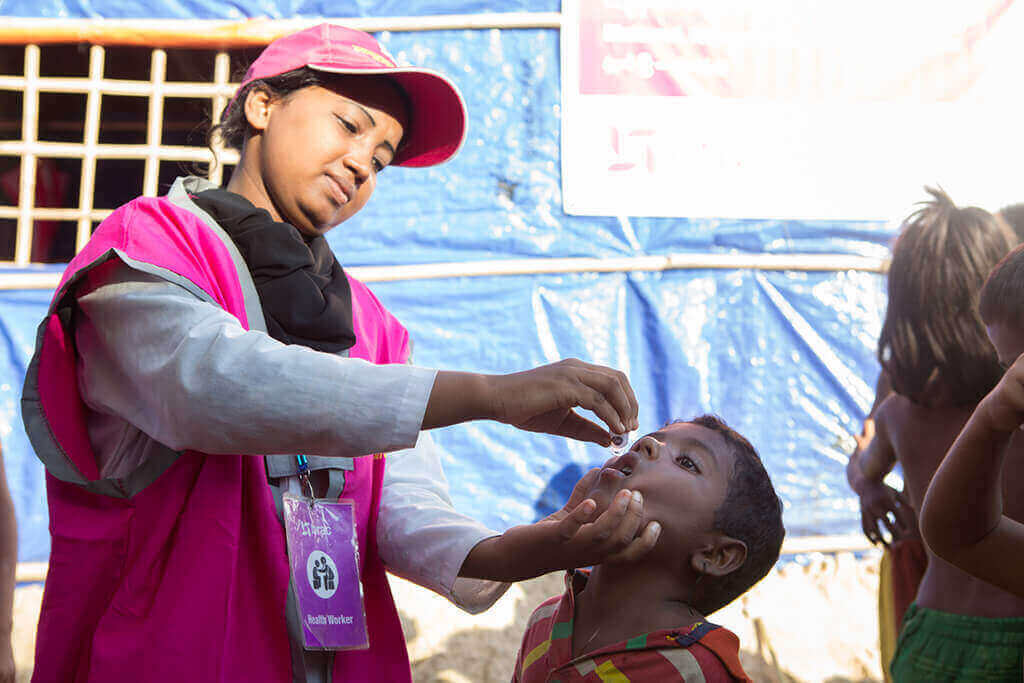
圖/@ BRAC 官網
社會企業是為解決社會問題而存在
此次來臺,法茲雷爵士不斷被提問的另一個問題,就是 NGO 與社會企業之間的拿捏。因為 BRAC 在孟加拉的計畫,每年有 8 成的資金收入,來自其旗下社會企業的自營收入,被牛津大學經濟學教授、Paul Collier 博士稱之為:「全世界最讓人驚奇的社會企業。」
BRAC 不僅擁有自己的種子研發公司,以及全孟加拉最大的乳製品公司 Aarong Dairy,還擁有支持婦女就業的織品與手工藝品店 Aarong。後者從 1978 年成立至今,不僅獲得公平貿易認證、有 97000 名婦女參與其中,還在孟加拉遍布 18 間分店,成為孟加拉最大的時尚藝品零售店。
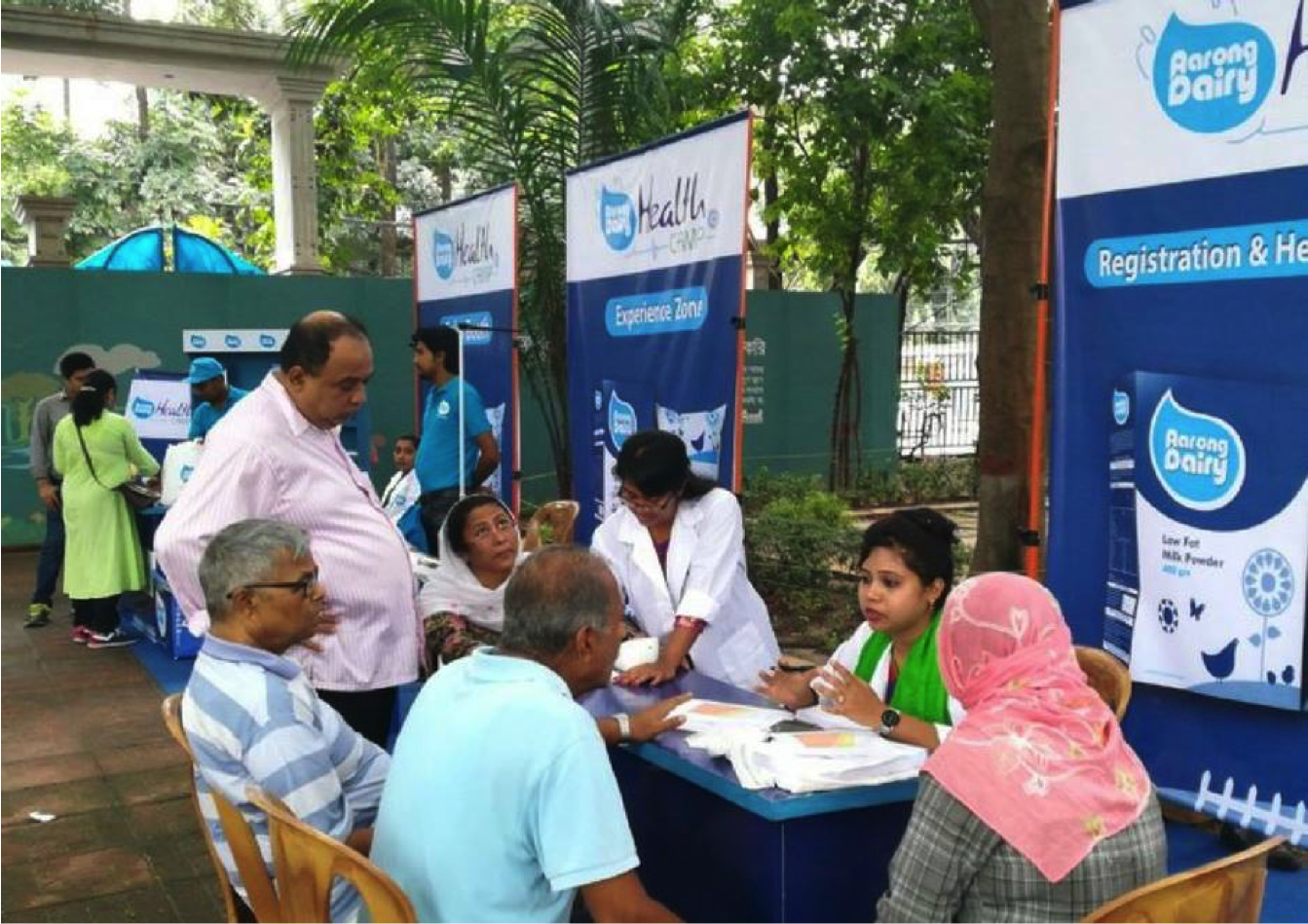
圖/@ Aarong Dairy
「我所有的社會企業,都源自於『助人』這個初衷。例如,我教會貧困者養牛、生產牛乳,但我很快就發現這些牛乳賣不出去,因為全村沒有一個人買得起牛乳;我培訓婦女們製作手工藝品、生產絲綢等產品,卻發現這些產品都賣不出去;我發現農夫的產量一直無法提升,因為他們沒有高品質的種子;我發現有些中小企業主因為『不夠窮』而無法跟銀行貸款,但他們確實又需要資金。」
法茲爵士解釋:「於是,我成立了乳製品公司,向農人收購牛奶、再製成乳製品、為他們創造市場;我成立手工藝織品公司,向婦女們收購手織品、提供保證收購價,再向外打開市場,讓這些產品可以在我們自己的店裡販售;我邀請科學家、育苗農夫一同研發種子,成立了種子公司,讓孟加拉全國玉米產量提升到 200 萬噸,足夠餵養全國所有養雞場的雞隻;我成立 BRAC 銀行(BRAC Bank Limited),放貸給中小企業主、提供微型貸款與金融服務。」
「這所有的一切,都是為了解決初始遇到的問題,也回應到我前面所說:能改變貧困者的永遠只有他們自己。NGOs 要做的只是創造一個有利他們發展的環境,例如『市場』。而我得到的盈餘,會再回饋給這些需要服務的人。換句話說,『你想要解決社會問題,而你試圖解決問題的方法是可獲利的,那就是社會企業了。』」
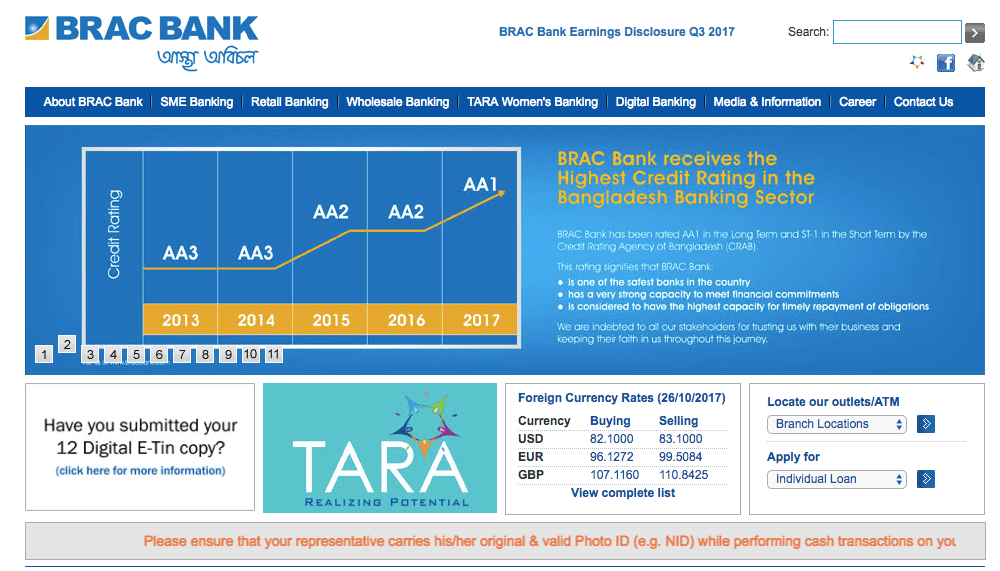
BRAC Bank 入口網站。圖/@ BRAC Bank
展望未來:性別平權、機會均等、根除貧窮
法茲雷爵士於立法院的拜會交流中提到,如今若要說人類還有什麼未竟之事,首先就是性別不平等。許多社會仍深陷牢固的父權結構之中,然而人類必須理解,性別平等並非零和競賽,女性贏得了某些權利,不代表男性就會有所損失。相反的,雙方其實都會從中得利。也因此,不同性別應該共同致力於推動性別平等,特別是亞洲地區,還有不小的進步空間,人們的心態需要改變。
兩性平權自也牽涉到生育率及人口結構,事實上,法茲雷爵士對於臺灣生育率名列全球最低,感到憂心忡忡,這一點明顯反映在他與陳建仁副總統的對談中:「你們必須現在就開始做些什麼!這是一件非常緊急的事。」法茲雷爵士建議副總統,可以參考法國、義大利及西班牙促進生育的政策,並且提供女性 6 個月的全薪育嬰假,「在 BRAC,所有女性員工產後都可以擁有半年的有薪假,以及半年的無薪假,這樣的支持非常必要。」法茲雷爵士也強調,公共托育服務及良好的兒少教育,都是提升生育率的必要條件。
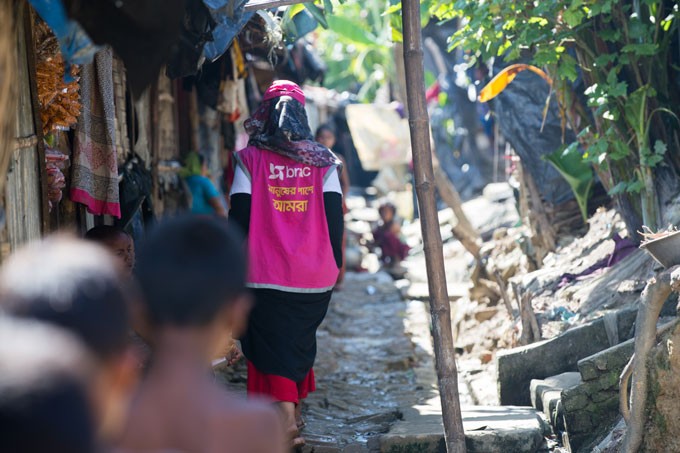
BRAC 培力女性工作者。圖/@ BRAC 官網
陳建仁副總統回應,臺灣已通過並開始施行長照 2.0,提供以社區為本的長照服務,國發會也積極想方設法提升生育率,包括提供幼照服務、建立幼照支持系統,以及增加日間托嬰中心數量等。
法茲雷爵士提到的第 2 點未竟之事,則是機會不均等,很多孩童在貧困家庭中出生,缺乏發揮潛能的機會,無法取得有品質的教育,甚至根本無法獲得教育。爵士強調,每個人都應有實現自我的機會。而這樣的機會匱乏,很大程度又來自於第 3 點,亦即極端貧窮尚未根除。
法茲雷爵士表示,這也是現在全球致力推展聯合國永續發展目標(SDGs)的重要原因:史上第一次,人類有機會在有生之年目睹 2030 年極端貧窮的根除,讓每個人都過著穩定、有意義、有品質的生活,發展中國家平均餘命可以提升到 6o 歲。「45 年前我創立 BRAC 時,孟加拉的平均餘命只有 47 歲,如今醫療、教育、生活品質已大有進展,平均餘命達到 72 歲。」
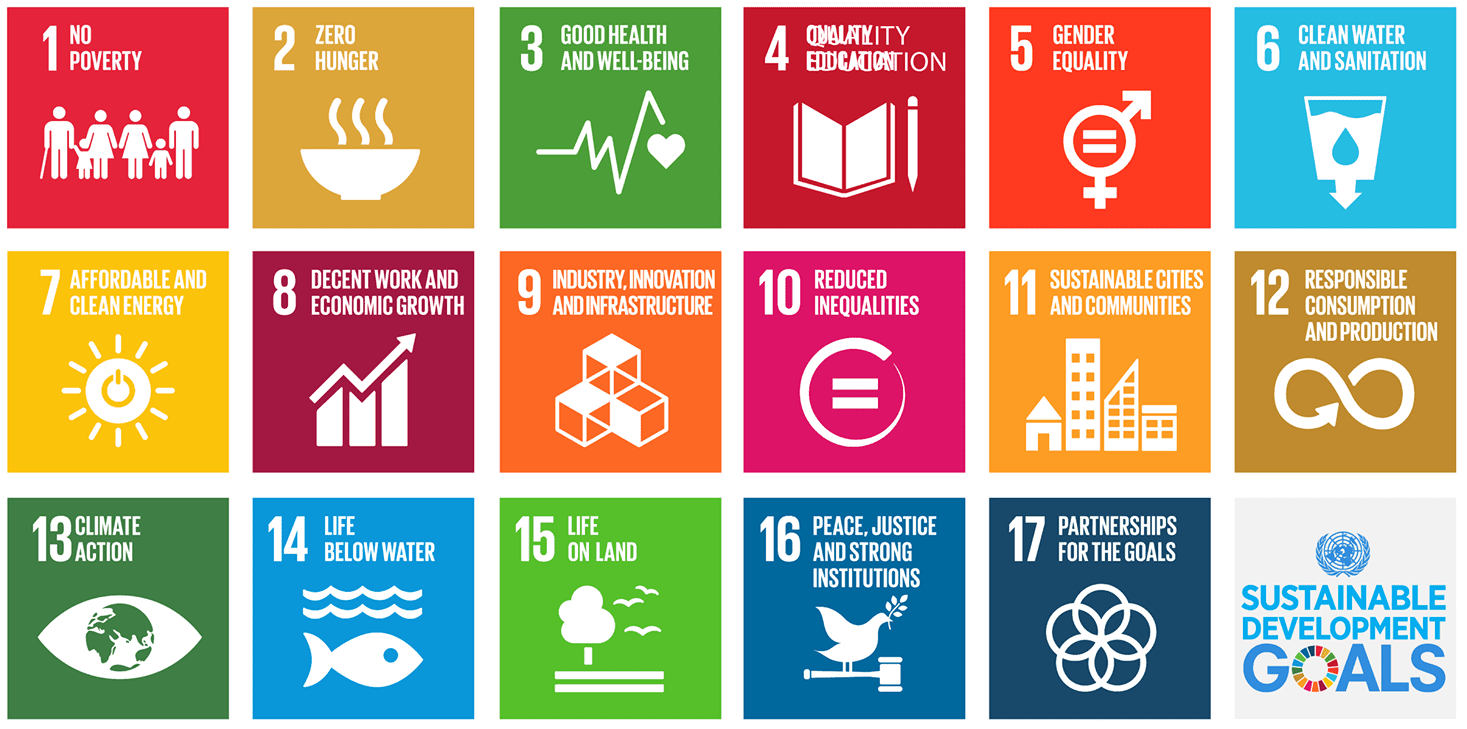
聯合國永續發展目標(SDGs)。圖/ @ SDGs 官網
「為了達成 SDGs,我們亟需政府、企業與公民社會的參與合作。」法茲雷爵士也進一步回答了余宛如委員的提問:「雖然臺灣政府沒有辦法在聯合國裡,與世界各國一同宣告 SDGs 的誕生,但臺灣用自己的方法將 SDGs 納入政策中,等於向全世界宣告,臺灣是國際社會的一份子、可以對實現 SDGs 做出貢獻,並且也能透過政府開發援助(Official Development Assistance,ODA)、NGOs 或其他國際發展與合作而有所貢獻。」
林靜儀委員也回饋,由其擔任會長、余宛如委員擔任副會長的「立法院聯合國永續發展諮詢委員會」已於今年 9 月 26 日正式成立,政府已承諾積極將 SDGs 的理念放入國家發展目標中,宣示臺灣推動 SDGs 的決心,也將讓其他國家和 INGOs 夥伴了解臺灣落實 SDGs 的經驗與成果,並期望立法、行政與民間部門,可以彼此監督與合作。
法茲雷爵士最後提及,臺灣與孟加拉的環境、機會、需求都不同。孟加拉還著眼在基本需求如教育、醫療的普及,臺灣則致力於撐開公民社會的空間、強化公民力量與民主體制。但不變的是,政府必須大力支持公民社會的發展,與民間多方合作,NGOs 也必須善盡監督政府之責。
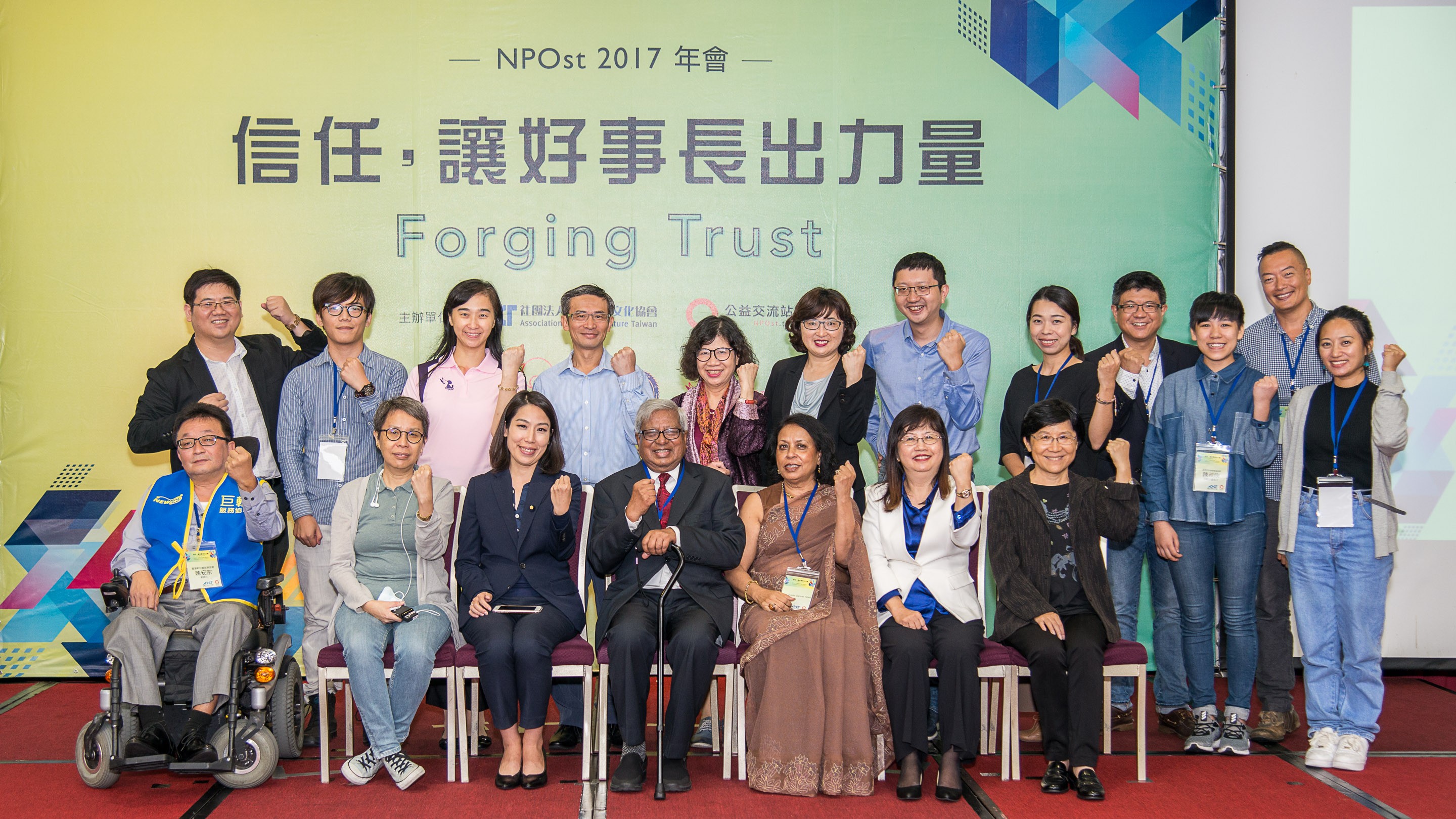
法茲雷爵士於 2017 NPOst 年會上與講者、與會貴賓合影。攝影/Jason Yeh
Empowering NGO Workers Before Empowering the Poor / Special Report on One of World’s Greatest 50 Leaders Sir Fazle and His Visit in Taiwan
翻譯/Emma Hsu
Editor’s Note:
We were honoured to have been able to invite Sir Fazle Hasan Abed, Chairman of BRAC, which has been rated as world’s number one NGO for two consecutive years by NGO Advisor. Sir Fazle shared his valuable experience with Taiwanese people.
Sir Fazle stayed a total of five days in Taiwan, from the midday of October 18th until the morning of October 22nd. Accompanied by NPOst, Sir Fazle visited Vice President of Taiwan Chen Chien-Jen as well as officials in NGO Affairs Committee of the Ministry of Foreign Affairs and DPP legislators-at-large seats. He also had a luncheon discussion with Taiwan AID and paid visit to DA.AI. The highlight of his visit is, of course, a speech lasting more than an hour which Sir Fazle delivered during the annual conference for over 300 NGO workers in Taiwan.
Kind and humorous, 81-year-old Sir Fazle left a strong impression on everyone with his brilliant presentation. NPOst has compiled the unmissable details during his visit in this report. Some of the facts which have been mentioned in the three introductory reports (such as the founding process of BRAC) will not be reiterated (please refer to the extended reading at the bottom of the report). We hope that this series of report can enlighten our readers who care about the collective well-being of the society.
In 1971, Bangladesh was riddled with with its independence war. Topped with the impact of the deadly tropical cyclones (typhoons), tens of millions of people became refugees. At the time, Sir Fazire was appointed Minister of Accounting at the world-renowned Shell Oil Company. In his speech at the NPOst annual conference, he emphasised that these cyclones were a wake-up call to his life, and he hoped to ameliorate the situation in Bangladesh.
Sir Fazle sold his own house in London. Together with the original funds he had at hand, he invested one million US dollars to build shelters for the displaced refugees and then established BRAC. Over the next nine years, BRAC built more than 10,000 houses and provided medical care and education for children, which was an extremely successful rescue and reconstruction programme at the time.
“I thought I could go back to my job in accounting after I had accomplished these deeds, but in Bangladesh everything was waiting to be reconstructed, and I found myself unable to leave like that.” Sir Fazle, then aged 36, has dedicated himself to poverty alleviation every since. At that time, Bangladesh, the world’s second-poorest nation, was in serious lack of medical and education system. BRAC was fortunate enough to receive funding from Oxfam and the Bangladeshi government to launch large-scale and long-term poor alleviation development programmes.
After the first phase of the development programme, which was completed under effective management and utilisation of resources, a certain amount of funding was left thanks to Sir Fazle’s profession in accounting. He was planning to return the balance to Oxfam, which was astonished and replied: “Keep the money because you’ll need it later.” The trust between BRAC and donors has thus embarked. “Effective use of resources” has become an important credential guarantee of BRAC.
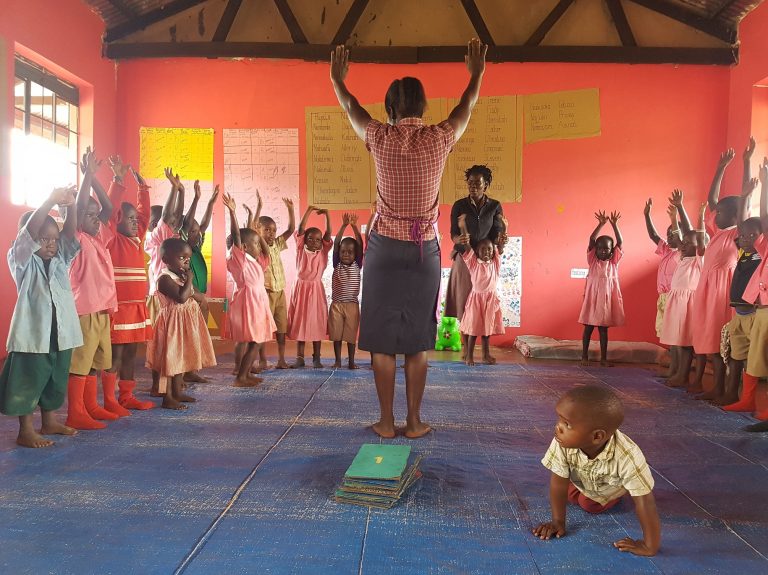
Inside one of BRAC’s play labs in Uganda. 圖/@ BRAC
In fact, effective management and resource utilisation, familiarity of the market logic and even creating new markets, as well as continual assessment of the effectiveness and efficiency of programmes, have always been at the heart of BRAC’s programme execution. “Many people are very caring, but in addition to being caring they should know how to think.” This is one of the keys to BRAC’s ability to grow from a developing country and expand globally. “The reason why we can last to this day is because there were too many poor people in extreme need in the 1970s in Bangladesh. The second is that unlike many governments which fear the growing power of NGOs, the Bangladeshi government has given us a lot of room for development. Thirdly, we uphold the principle of business administration and keep examining the effectiveness of projects and programmes,” Sir Fazle said.
He laughed and added: “Young people often asked me how to get into NGOs and become outstanding NGO workers. I always tell them to train themselves in enterprises for two years first. They should learn managerial thinking and market logics for two years before working for an NGO, so that they will have totally different perspectives.”
Steve Jobs: Why did it take you as long as 30 years to step out of Bangladesh?
With nearly 50 years of efficient managerial thinking, today BRAC has more than 110,000 employees in 11 countries around the world. What is surprising is that NGOs in Taiwan which are devoted to international cooperation and development are constantly questioned: “Why don’t you help Taiwanese people first?” Apparently, this issue occurs all over the world. When BRAC first stepped out of Bangladesh in 2001 to expand poverty alleviation programmes in Afghanistan, it was confronted with the same kind of challenge: “Are all your programmes in Bangladesh accomplished? Why don’t you take care of Bangladesh first?”
In response to this, Sir Fazle said: “What I want to do is to help the poor. So, wherever there is poverty, there are people who need help.” Then he continued with a smile: “But I was also being asked by the founder of Apple Steve Jobs, who asked why I took 30 years to step out of Bangladesh. I think everybody thinks very differently.”
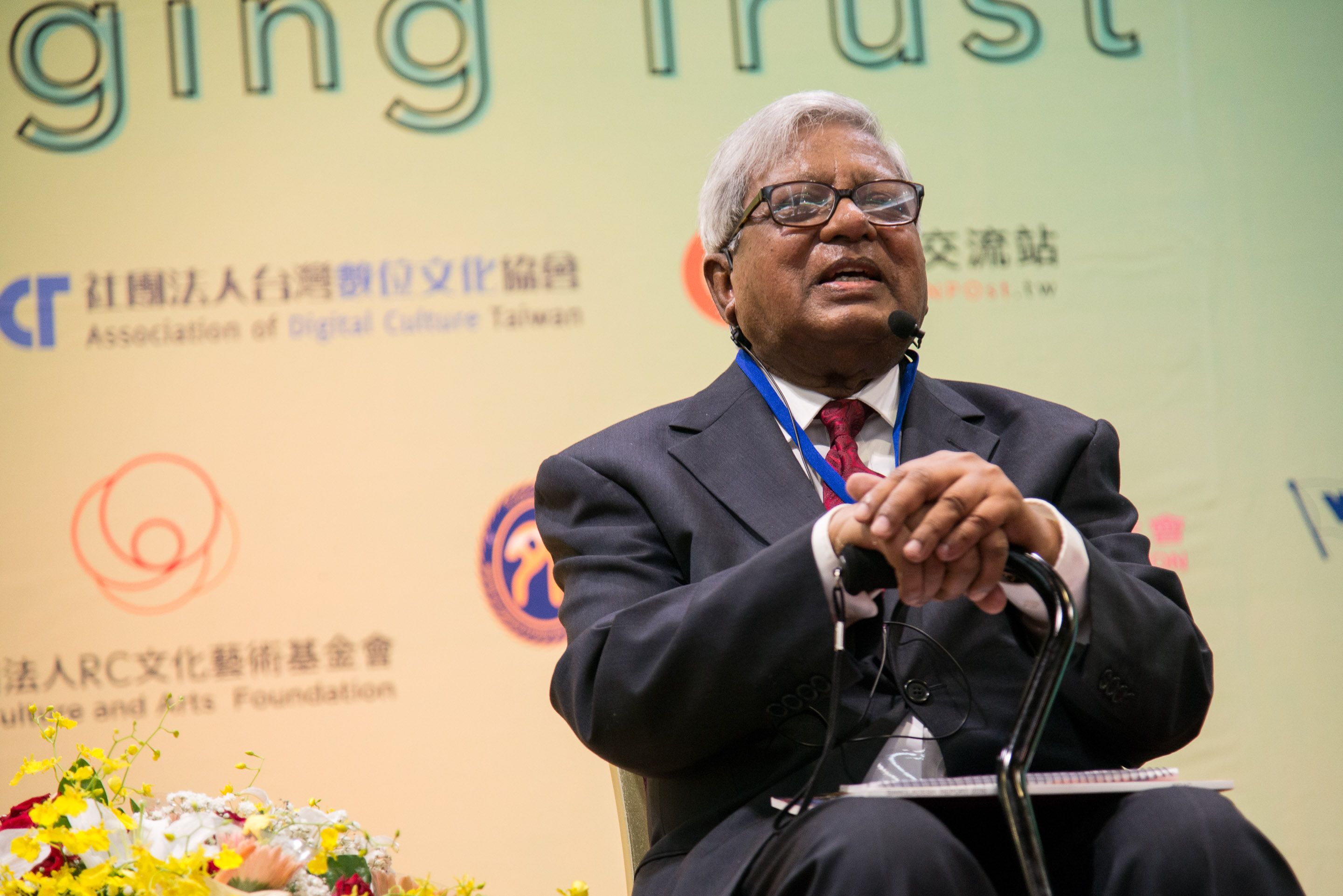
攝影/Jason Yeh
Different perspectives on enterprises and NGOs are also reflected in different aspects. When the number of BRAC workers exceeded 10,000, some were worried that Sir Fazle’s organisation was “too big.” He was puzzled. “I used to work for Shell Oil Company, which has more than 300,000 workers in the world, but no one ever fears that it is ‘too big.’ Why is it a problem when it comes to NGOs?”
Different perspectives on enterprises and NGOs are also reflected in different aspects. When the number of BRAC workers exceeded 10,000, some were worried that Sir Fazle’s organisation was “too big.” He was puzzled. “I used to work for Shell Oil Company, which has more than 300,000 workers in the world, but no one ever fears that it is ‘too big.’ Why is it a problem when it comes to NGOs?”
“Before an organisation can expand, four key competencies have to be established: manpower training, fundraising and resources, finance and accounting, and assessment and auditing. These capabilities must have a strong base before you expand, or it can be very dangerous to scale up without sufficient planning.” He added, “BRAC would always start with a small pilot programme which we repeatedly monitor, assess and adjust so as to maximise the effectiveness and efficiency of the programme before it could be expanded to national or regional levels. We also pay great attention to the recruitment and training of talents. We have set up 25 manpower training centres all over Bangladesh. Only when both manpower and resources are in place will we try to expand the scale of our programmes.”
Because BRAC attaches great importance to the training of personnel, it is able to keep the highest number of workers dedicated to the organisation. “In fact, although BRAC is the largest NGO in terms of scale, it does not have the most resources.” Sir Fazle joked that there are many more resourceful NGOs in Europe and America. BRAC simply has more employees.
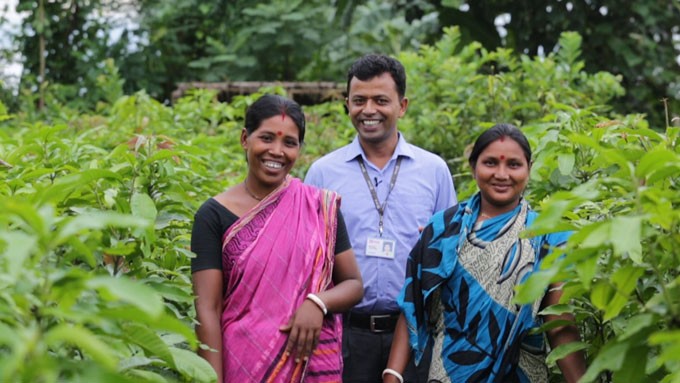
圖/@ BRAC
Before empowering the poor, we should empower the workers
With so many employees, how can the organisation ensure its core values can be implemented and that it can cultivate talents in leadership?
“Empowerment is the key,” Sir Fazle emphasised. “In BRAC there are many leaders of different expertise, each taking charge of different projects. We let them make many decisions on their own. Of course, some people make mistakes, but we allow room for mistakes as long as people can learn from them. These leaders may not always stay in BRAC for long term, but if they can find other stages, I think it is also a good thing. Because at the same time, there will be new blood joining BRAC.”
Sir Fazle further pointed out that there are four core values in BRAC, which are integrity, innovation, inclusiveness and effectiveness. Each value carries its own sub-goals, and the organisation has made brochures for employees to ensure that every newcomer can understand and identify with these values. They review and readjust work plans at the end of every year, and milestones are adjusted every five years to ensure that BRAC continues to move in the right direction.

圖/Annie Spratt @ Unsplash
Poverty is a structural problem
On October 6th this year, “Taipei for the Poor”, launched by 27 Taiwan NGOs, called for about 200 participants for a rally and to stay overnight on Taipei’s Aiguo East Road. In the rainy Daan Forest Park, Vice-President Chen Chien-Jen mentioned in his speech that poverty is caused by structural oppression, rather than by personal negligence or moral failure as previously thought. This is also what Sir Fazle has repeatedly emphasised. For the poor, it is far from enough to provide short-term grants or supplies. What is important is to create an “environment” which is favourable to the long-term development of the poor. “We should ensure that everyone has a decent job, the opportunity to work, the feeling of being needed, in order to bring the value of human into full play.”
Sir Fazle has always been convinced that the poor are the agents who can change their own destiny, and no one else had any means of directly changing their lives. Therefore, what NGOs need to do is to make these poor people “are willing to change” and “want to change”, and to create an environment in which they “can change”.
“We did come across quite a number of difficulties at the beginning. For example, we set up schools continuously, and we boasted to Oxfam that we would ensure everyone in Bangladesh could receive education within three years. But then we realised that no one wanted to go to school after a day of hard work, because going to school did not help with their lives.” However, although the reluctance to attend class seemed to be due to exhaustion, the real reason is that people lacked motivation and did not understand what learning is all about.
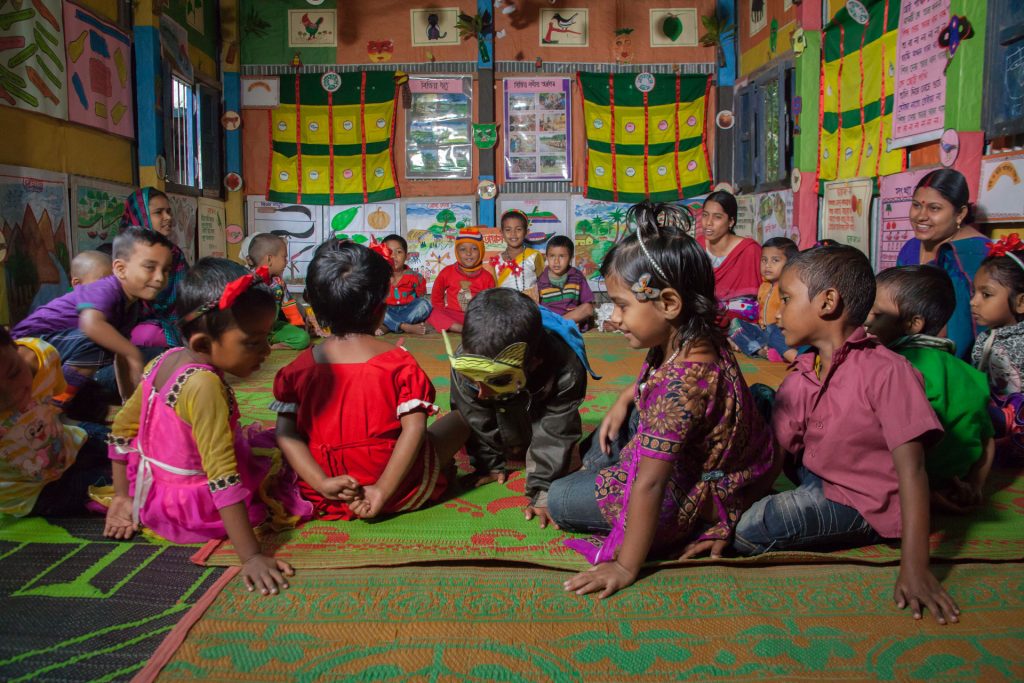
圖/@ BRAC
“Then we turned to a Brazilian educator, who used some key words such as famine, hardship, starvation and so on to teach the poor to discuss the most relevant issues in life. For example, why some people have nothing at all? What kinds of situation are the poor facing? What are some of the social discrimination? Through discussion, the poor started to think and build confidence, and then they would start looking for solutions and answers.”
“This kind of critical thinking and self-confidence is what we want to see. First they have to want to change, and then they have to be convinced that they have the power to change. We then create an environment that is conducive to change. For example, BRAC would provide them with micro-loans, but they must learn to save money by themselves and work hard to repay their loans.”
When it comes to money saving, Sir Fazle emphasised that the concept of “future” for the poor may differ greatly from that of Taiwanese people. “For them, they would only think about want to do for the day. If they could work today, they would feed themselves today. What happens tomorrow will be dealt with tomorrow. Their planning is always limited to 24 hours, so that it is vital to teach them to save money, to think about tomorrow, the day after tomorrow, next month, next year, ensuring they look beyond today.”
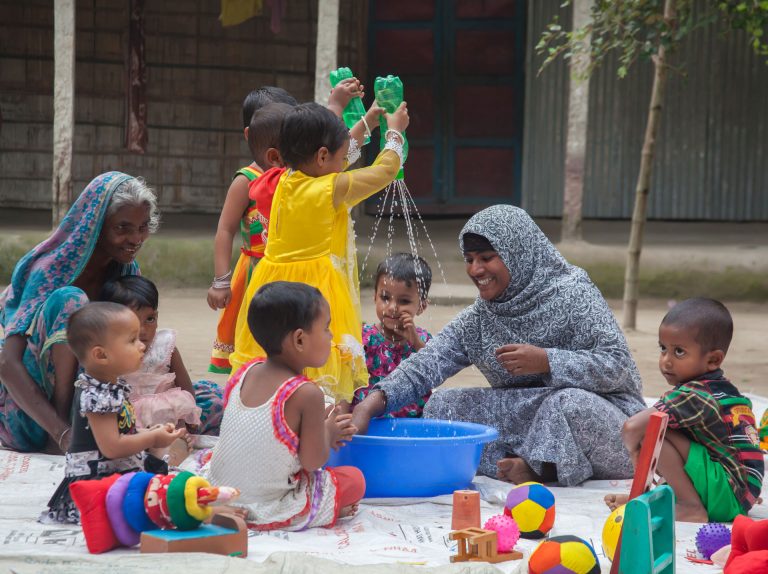
圖/@ BRAC
The poor’s interpretation of certain concepts may be unfamiliar to many European and American NGOs. On the other hand, BRAC, which emerged from the ashes of post-war Bangladesh, understands the poor perfectly. Sir Fazle has realised since very early on that people must “believe” before they have the desire to learn. However, there are often many obstacles to make the the poor “believe”.
The poor’s interpretation of certain concepts may be unfamiliar to many European and American NGOs. On the other hand, BRAC, which emerged from the ashes of post-war Bangladesh, understands the poor perfectly. Sir Fazle has realised since very early on that people must “believe” before they have the desire to learn. However, there are often many obstacles to make the the poor “believe”.
Sir Fazle explained: “But the result was not satisfactory. We then hired anthropologists to conduct surveys, which found out that many men in the family prevented their wife from learning because they did not understand, and they became the resisting force to the implementation of the plan. Therefore, we readjusted the plan, reeducated those men, and later upgraded our teaching efficiency with small-class teaching, and finally the programme could be carried out smoothly.”
“All the problems can be solved, as long as you are determined to look for the solutions.” Sir Fazle emphasised with a smile.
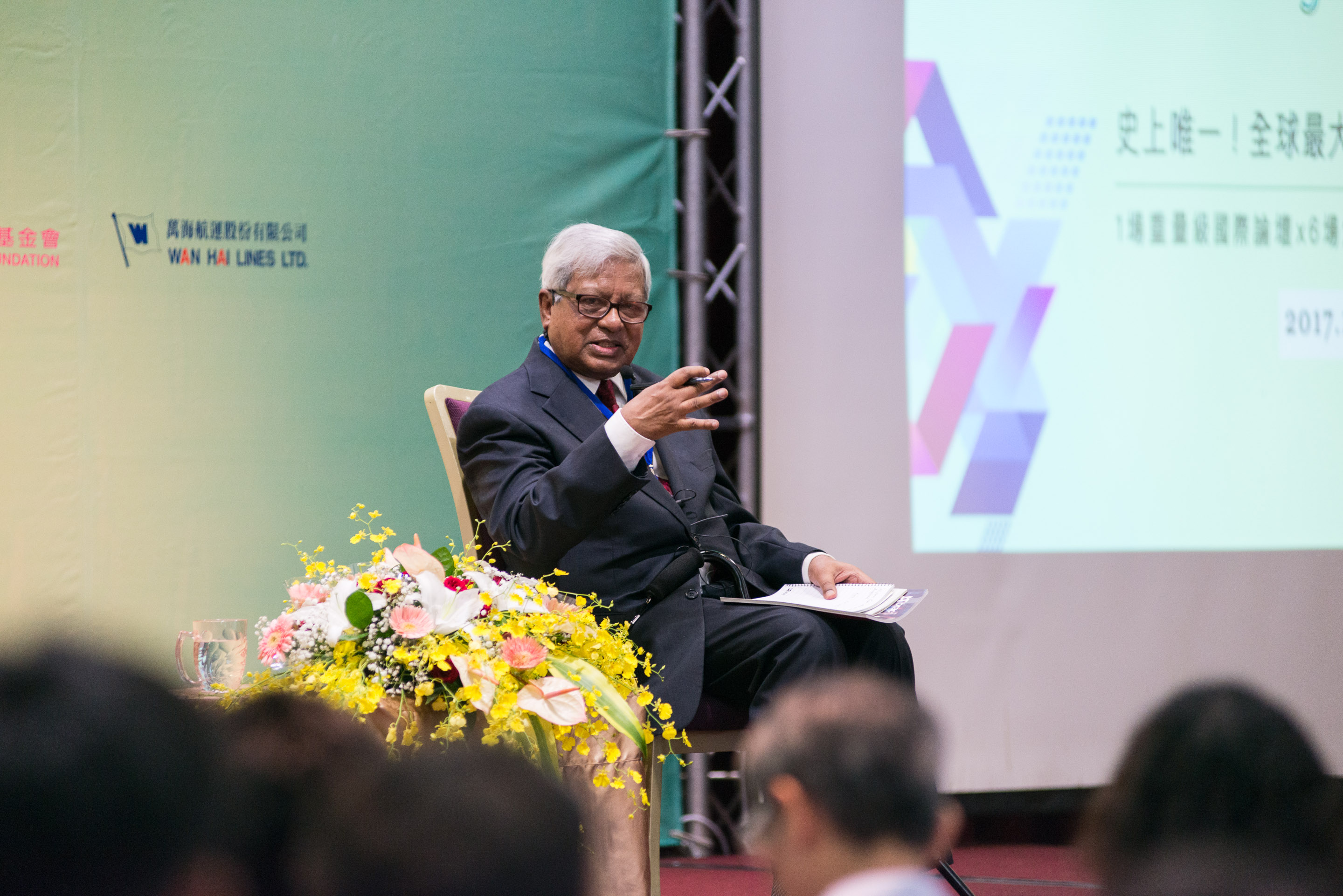
攝影/Jason Yeh
Social enterprises exist in order to solve social problems
Another question that Sir Fazle was constantly asked during his trip to Taiwan is the handling between NGOs and social enterprises. 80% of BRAC’s annual capital income is generated by its self-sustaining social enterprises. Seeing this, Dr. Paul Collier, a professor of economics at Oxford University, exclaimed that “BRAC is the most astounding social enterprise in the world.”
BRAC not only owns its own seed research and development company but also Aarong Dairy, the largest dairy company in Bangladesh, and Aarong, a fabric and handicraft shop that supports women’s employment. Since its establishment in 1978, Aarong has not only received the Fairtrade certification but also employed 97,000 women and opened 18 branches all over Bangladesh. It has become Bangladesh’s largest retail store for fashion handicraft.

圖/@ Aarong.
“All of my social enterprises are derived from the original intention of helping others. For example, I taught the poor to raise cattle and produce milk, but I soon realised that the milk couldn’t be sold because no one in the village could afford milk. I trained women to make handicrafts and produce products such as silk, but then realised that no one wanted to buy them. I found that farmers’ productivity was not able to be increases because they did not have high-quality seeds. I also found that some owners of small and medium enterprises were unable to take out loans from banks because they were not ‘poor enough’, but then again they really needed the funds.”
Sir Fazle explained: “As a result, I set up a dairy company to buy milk from farmers and made dairy products to create a market for them. I set up a handicraft company to buy hand-woven products from women and provided guaranteed purchase prices. Then we opened the market and sold the products in our own shops. I invited scientists and nursery farmers to work together to develop seeds, and then established a seed company, which raised the national corn output in Bangladesh to 2 million tons, enough to feed all the domestic chicken in chicken farms. I also established BRAC Bank Limited to provide micro-loans and financial services to owners of small and medium enterprises.”
“All of this is about solving the problems we encountered, which responds to what I said earlier: the only way that can change the poor is in the poor themselves. The only thing that NGOs should do is to create an environment conducive to their development, such as creating ‘markets’. And the profits I gained will always be returned to those who need our service. In other words, if you want to tackle social issues, and the way you use to solve these problems are profitable, then your organisation can be referred to as a social enterprise.”
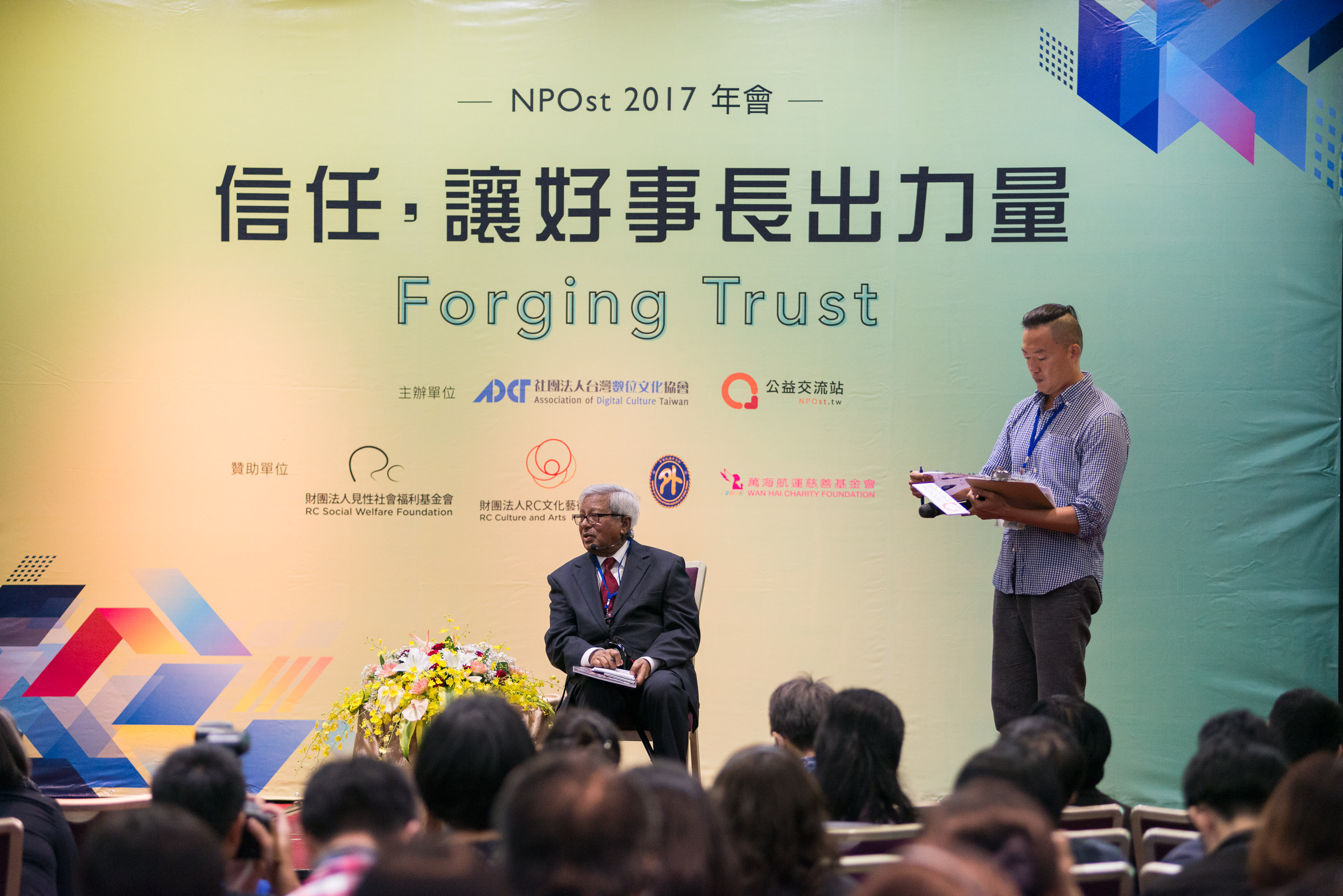
攝影/Jason Yeh
Future outlook: gender equality, equality of opportunity and poverty eradication
During the exchange of views with the Legislative Yuan, Sir Fazle mentioned that the first thing to say about what humans haven’t achieved is gender equality. Many societies are still deeply trapped in an unbreakable patriarchal structure, yet humans must understand that gender equality is not a zero-sum competition. The fact that women gained some rights does not necessarily mean that men have lost some rights. On the contrary, both parties will actually benefit from it. Therefore, different genders should work together to promote gender equality, especially in Asia where there is still a lot of room for improvement. People need to change their frame of thought.
Gender equality also involves fertility and population structure. In fact, Sir Fazle is very worried about the fact that Taiwan has the lowest fertility rate in the world. This is clearly reflected in his dialogue with Vice President Chen Chien-Jen. “You must start doing something right now! This is a very urgent matter.” Sir Fazle suggested that Vice President refer to the fertility promoting policies in France, Italy and Spain, and provide women with 6-month paid parental leave. “At BRAC, all female employees are entitled to half a year’s paid leave and half a year’s unpaid leave. This kind of support is of great necessity.” Sir Fazle also emphasised that public childcare services and sound education for children are both necessary criteria to enhance fertility.
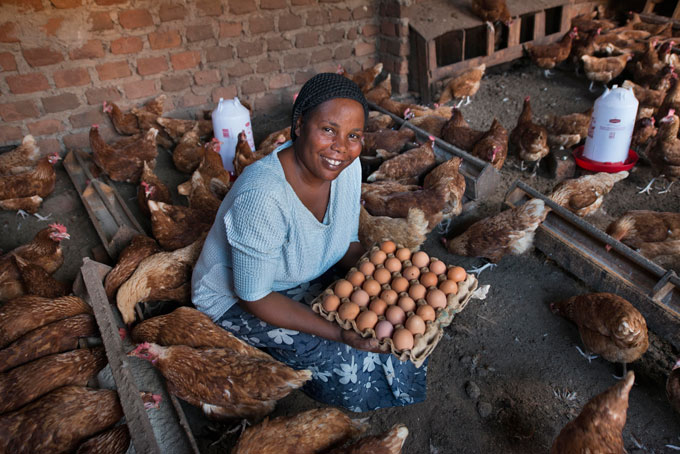
圖/@ BRAC
Vice President Chen Chien-Jen responded that Taiwan has passed and started to implement Long-Term Care 2.0, which provides community-based long-term care services. The National Development Council also actively seeks ways to increase fertility rates, including the provision of childcare services, the establishment of childcare support systems, and the increase of daycare centres.
The second mission to be accomplished mentioned by Sir Fazle is the inequality of opportunity. Many children are born in poor families. They lack the opportunities to fulfil their potential, they were unable to acquire quality education, or they might have no chance to receive education at all. Sir Fazle emphasised that everyone should have the opportunity to fulfil themselves. The lack of such opportunities, to a large extent, resulted from his third point: extreme poverty has not yet been eradicated.
Sir Fazle said that this is also an important reason why the world is now committed to promoting the United Nations’ Sustainable Development Goals (SDGs). For the first time in history, mankind has the opportunity to witness the eradication of extreme poverty by 2030, which will promise to give everyone a stable, meaningful and quality life. The average life expectancy in developing countries can reach 60 years. “When I founded BRAC 45 years ago, the average life expectancy in Bangladesh was only 47. Now that medical care, education and quality of life have been greatly improved, and the average life expectancy has reached 72 years.”
“In order to achieve SDGs, we urgently need the participation and cooperation among governments, businesses and the civil societies.” Sir Fazle further answered legislator Yu Wan-Ru’s question: “Although the Taiwanese government has no means of proclaiming the birth of SDGs together with other countries in the United Nations, Taiwan has included SDGs in its policies in its own manner, which is a way to declare to the world that Taiwan is a part of the international community and can make contribution to achieving SDGs. It is also able to make contributions through its Official Development Assistance (ODA) schemes, NGOs or other international development and cooperation programmes.”
Legislator Lin Ching-Yi also mentioned that the “UN Sustainable Development Goals Advisory Council of Parliament”, in which Legislator Lin Ching-Yi and Yu Wang-Ru serve as President and Vice President respectively, was officially launched on September 26 this year. The government has promised to actively incorporate the concept of SDGs into its national development goals, declaring Taiwan’s determination to promote SDGs. It will also allow other countries and INGO partners to know more about Taiwan’s experience and achievements in implementing SDGs. It is expected that the legislature, the executive and the private sector can supervise and cooperate with one other.
Finally, Sir Fazle mentioned that the environments, opportunities and needs in Taiwan and Bangladesh are different. Bangladesh is still focusing on basic needs such as education and medical coverage, whereas Taiwan should be committed to expanding the space in its civil society and strengthening its civil power and democratic system. But what remains the same is that the government must provide great support to the development of civil society and increase cooperation with the private sector. NGOs should also exercise due diligence in supervising the government.
延伸閱讀:
「為什麼貧窮的地方看得到可口可樂,卻看不到疫苗?」全球最大 NGO 扭轉 1.38 億人命運/2017 NPOST 年會前導報導 1
從戰後灰燼中崛起的 BRAC,如何成為影響全球的 NGO?/2017 NPOST 年會前導報導 2「服務與管理沒做好,品牌行銷再好也是徒勞。」/2017 NPOST 年會獨家專訪前導報導 3

